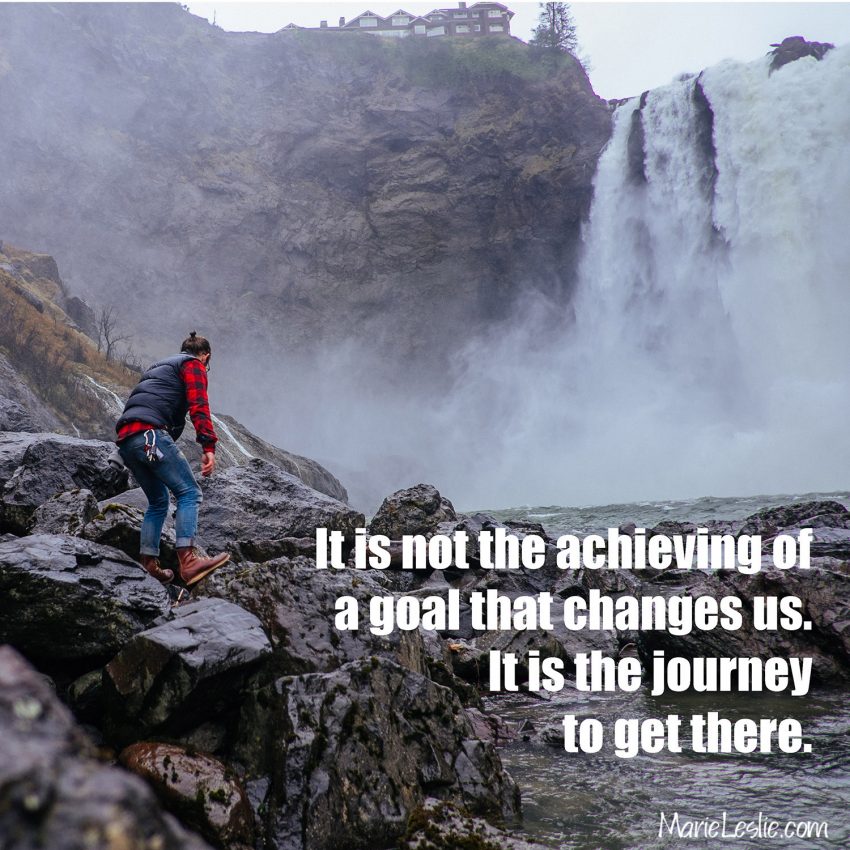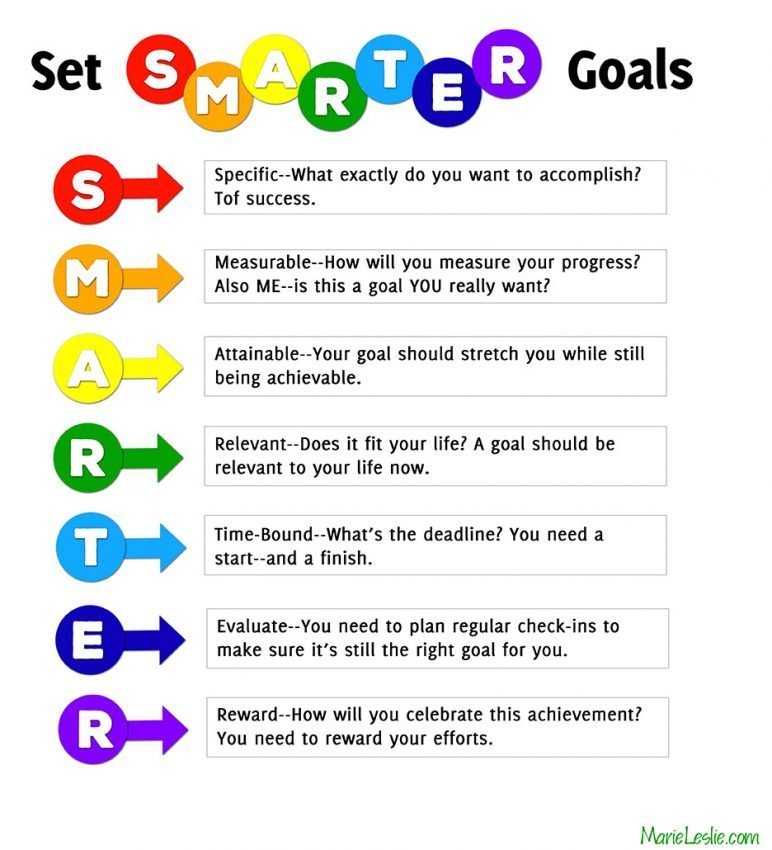How to Set Goals You Can Achieve This Year
Happy New Year! Did you set goals (or make resolutions) for this year?
Are they the same goals you set last year?
Do you even remember the goals you set last year? Did you achieve any of them? If you did, you are awesome. You are also in the minority. Multiple studies show that only eight percent of people actually follow through and achieve their goals. That is a SAD number. On the other hand, if you didn’t make it to your goals last year, you’re certainly in good company.
Would you like to achieve your goals this year? There are things that you can do to help you increase your success rate and join the eight percent. Here are some of the things that will help you achieve goal success this year. Even if you’ve already started on that goal setting, it’s not too late to follow these steps, make the necessary tweaks and get yourself on the right track. And to help you with the process, there is a free downloadable Goal Setting Checklist and Worksheet at the end of this post.
Review last year’s goals.
Did you achieve them? Did you not? What went right? What didn’t go so well? How do you feel about those goals now?
If you still want to achieve that goal, what could you do differently to have a better outcome?
As you think about each of the goals you want to set this year, look at your answers to the questions. Are this year’s goals the same as last year’s unsuccessful goals? If they are the same goals, what is different this year that makes setting that same goal a good idea?
Get Clear on Your Why
Why are you setting this goal? Why do you want this? How will it change your life? If this isn’t a goal YOU want, but you’re setting it because you think you’re supposed to, or because someone has told you this is a goal you need, your chances of goal success are pretty slim. It doesn’t matter what the goal is, if you aren’t completely invested in achieving it and don’t have clarity, it’s not a good goal for you. Spend some time reflecting on this part so that you’re clear on the why.
If these goals are important to your life, what are you going to do differently this year that will allow you to achieve these goals? Do you need to work with a mentor, coach or advisor to help you achieve this goal? Are there skills or training you need that you didn’t have or have access to last year? Are there resources available that weren’t previously? If it was a matter of time, is there now the necessary time in your schedule or will you be able and willing to create that time so you can be successful in pursuit of your goal?
What’s involved in achieving this goal? Are you ready to commit to whatever it will take to achieve this goal? Good goals involve sacrifice, hard work and change. Are you ready to embrace the work, sacrifice and change to achieve this goal? How will achieving this goal change your life? What will this change in your life look like? Write out your vision of your life once this goal is achieved in as much detail as you can envision. Do you accept this change in your life? If you aren’t ready for the change this goal will bring, you may not be ready for this goal.
Goals should not just be about what you want to have, but also what you want to experience, share, give and become.
Write goals in the present tense
State your goals as if you have already achieved them. Use the phrase “I am…” whenever you can. These are two powerful little words to your brain, which is always searching for ways to define your identity. It will wake up and pay attention whenever it hears these words, especially when spoken with intensity, emotion, and repetition.
Write your goals in positive language. Instead of “I will lose 25 pounds” try “I am feeling healthy and happy at 140 pounds.” (or whatever your goal weight is.) Don’t set goals to STOP doing something. Figure out what good habit you want to replace that bad habit with and use that as your goal. Instead of “I will stop smoking” try “I am happily a non-smoker.” Our brains respond much better to positive language than negative language.
Make your goal a stretch
Your goal should be a stretch, just beyond your current grasp. There’s nothing wrong with having a great big moonshot pie-in-the-sky goal, but to achieve it, break it down into smaller goals that stretch just beyond your reach. Setting challenging goals can increase your motivation, self-confidence and skills, but setting goals that are so far beyond your reach that they frustrate you can have the opposite effect. Remember, the point is to set goals you can reach, though not too easily.
“You have to set goals that are almost out of reach. If you set a goal that is attainable without much work or thought, you are stuck with something below your true talent and potential.” —Steve Garvey
Use visualization and affirmations.
Having visual and verbal reminders of your goals can be a huge boost to your success. Use words and images that represent the achievement of your goal and what it will mean to you. Mount them on a poster board and post it where you will see it every single day. Include images of yourself or your family when possible to personalize it. This “vision board” helps you to see what you are working toward and what the results will be when you get there.
An affirmation is your goal statement written as if it has already occurred. Post these next to your vision board where you can see them and repeat them out loud multiple times each day. As you do this, your brain becomes used to thinking that having achieved this goal is just the way life is, and it helps keep your brain working on how you can achieve this goal.
Get an accountability partner.
Get an accountability partner. select the right person to share your goals with: a mentor, parent, close friend, someone who will actually support you, encourage you, and hold your vision for you if you lose it along the way. Someone who will hold your feet to the fire and not buy your excuses about why you can’t do it. Sometimes it’s hard for the people closest to us to be our accountability partners. They don’t want to hurt our feelings, make us mad or see us struggle. And that’s ok. If your spouse/partner/best friend isn’t going to be the right one to hold you accountable, find someone else to help you.

Celebrate your victories.
Whether it’s a milestone step on the way to your big goal, or achieving the goal itself, make the celebration part of your planning. It’s not enough to acknowledge it and move on to the next one. Our brains like pleasure—and celebrations, in whatever form works for you—is pleasure and makes your brain happy. When you teach your brain to associate achieving goals (and creating success) with pleasure and happiness, it will become easier to develop the habit of achieving goals.
I can’t guarantee that you’ll achieve your goals this year, that part is up to you. But I can promise you that if you follow these steps—and follow through—you will be able to set goals you can achieve this year.
“By recording your dreams and goals on paper, you set in motion the process of becoming the person you most want to be. Put your future in good hands—your own.” —Mark Victor Hansen











